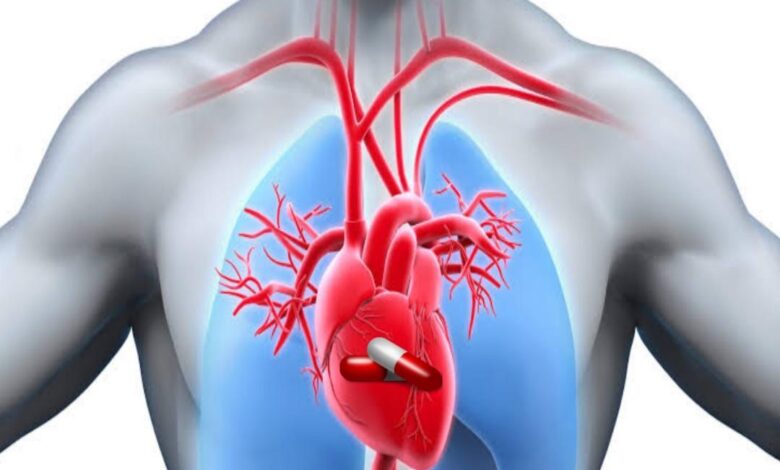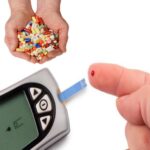Cardiovascular Drugs: List, Uses, Side Effects, Safety

Cardiovascular drugs are medications that are used to treat various conditions related to the heart and blood vessels. These medications are prescribed by healthcare professionals to manage and control cardiovascular diseases, including hypertension (high blood pressure), coronary artery disease, heart failure, arrhythmias (irregular heart rhythms), and other related conditions.
The number of people dying from cardiovascular disease (CVD) is steadily rising, including one-third of all deaths globally in 2019, according to a paper in the Journal of the American College of Cardiology that reviewed the total magnitude of CVD burden and trends over 30 years around the world.
There are many different classes of drugs that fall under the general term cardiovascular agent. Some work directly on the blood vessels surrounding the heart, reducing how much force the heart has to pump against. Others lower cholesterol levels and help reduce the formation of atherosclerotic plaques which cause blood vessel narrowing. Some work in the kidneys to increase fluid and salt loss or improve blood flow through the kidneys. The type of cardiovascular disease the person has determines which class of cardiovascular agent to use.
The list of some common types of cardiovascular drugs include:
1. Antihypertensive Drugs: These medications are used to lower high blood pressure and reduce the risk of heart attack, stroke, and other cardiovascular complications. Examples include ACE inhibitors, beta-blockers, calcium channel blockers, and diuretics.
2. Antiplatelet Agents: These drugs help prevent the formation of blood clots by inhibiting platelet aggregation. They are commonly prescribed to reduce the risk of heart attack and stroke. Aspirin and clopidogrel are widely used, antiplatelet agents.
3. Statins: Statins are cholesterol-lowering medications that help lower LDL (low-density lipoprotein) cholesterol levels, also known as “bad” cholesterol. By reducing cholesterol levels, statins can help prevent the buildup of plaque in the arteries and reduce the risk of heart disease. Commonly prescribed statins include atorvastatin and simvastatin.
4. Beta-Blockers: Beta-blockers are medications that block the effects of adrenaline on the heart and blood vessels. They are used to lower blood pressure, reduce heart rate, and manage various heart conditions such as angina (chest pain), arrhythmias, and heart failure.
5. Angiotensin-Converting Enzyme (ACE) Inhibitors: ACE inhibitors help relax and widen blood vessels, reducing blood pressure. They are commonly prescribed for hypertension, heart failure, and certain kidney conditions. Examples include lisinopril, enalapril, and ramipril.
6. Calcium Channel Blockers: These drugs inhibit the entry of calcium into muscle cells of the heart and blood vessels, leading to the relaxation of blood vessels and reduced workload on the heart. They are used to treat hypertension, angina, and certain arrhythmias. Examples include amlodipine, diltiazem, and verapamil.
7. Diuretics: Diuretics increase urine production, which helps reduce fluid buildup in the body and lower blood pressure. They are commonly prescribed for hypertension and heart failure. Thiazide diuretics, such as hydrochlorothiazide, and loop diuretics, such as furosemide, are commonly used.
It’s important to note that the use of cardiovascular drugs should be prescribed and monitored by a healthcare professional, as the choice of medication and dosage may vary based on individual patient factors and specific cardiovascular conditions.
Safety of Cardiovascular Drug
Cardiac safety, particularly drug-induced heart rhythm abnormalities, remains an important cause of pipeline attrition and has resulted in countless major product recalls or label changes. The risk of encountering this major adverse event continues to shape the drug development and regulatory landscape.
Extensive research over the past decade has shed light on the root causes of arrhythmias that are triggered by medications and have helped drive and optimize drug safety testing. However, current cardiac safety platforms have several limitations and there remains a pressing unmet need to improve the predictive power of today’s drug safety tests.
In addition, According to studies, cardiovascular toxicity is one of the major reasons for those late withdrawals, meaning that many patients are exposed to unexpected serious cardiovascular risks.
When on multiple medications and complex regimens, cardiac patients are at increased risk and particularly vulnerable to drug interactions. The common combination of ACEIs and beta-blockers for example usually has an additive hypotensive effect. While such interactions should be considered and monitored, using these medicines concomitantly is often fundamental to treatment.
Foods such as grapefruit juice, herbal medicines such as St John’s Wart, and non-prescription and illicit medicines should be checked for interactions. Consult with a pharmacist to assist with the interpretation of the potential and risk of medication interactions.
A rational and informed approach to drug interactions, based on scientific knowledge, can reduce the chance of adverse effects and improve patient outcomes.
How To Avoid Drug-Induced Cardiovascular Toxicity
To minimize the risk of drug-induced cardiovascular toxicity, it’s crucial to follow the prescribed medications as directed and communicate effectively with your healthcare provider. Here are some guidelines to help avoid drug-induced cardiovascular toxicity:
1. Follow Prescriptions as Directed: Take medications exactly as prescribed by your healthcare provider. Follow the recommended dosage, frequency, and duration of treatment. Do not skip doses or take more than the prescribed amount unless advised by your healthcare provider.
2. Inform Your Healthcare Provider: Make sure your healthcare provider is aware of your complete medical history, including any pre-existing cardiovascular conditions or risk factors. Provide a list of all the medications, including over-the-counter drugs, supplements, and herbal remedies you are taking, to avoid potential drug interactions.
3. Be Aware of Potential Side Effects: Educate yourself about the potential cardiovascular side effects of the medications you are taking. Common examples of drugs that can have cardiovascular effects include certain antibiotics, nonsteroidal anti-inflammatory drugs (NSAIDs), antipsychotics, and some cancer treatments. Stay vigilant for symptoms such as irregular heartbeat, chest pain, shortness of breath, swelling, or any other unusual signs, and report them to your healthcare provider promptly.
4. Regular Monitoring: If you are taking medications that have the potential to cause cardiovascular toxicity, your healthcare provider may recommend regular monitoring of specific parameters such as blood pressure, heart rate, electrocardiogram (ECG), or blood tests. These tests help identify any changes or abnormalities that may indicate drug-induced cardiovascular toxicity.
5. Consult Your Healthcare Provider: If you have any concerns or questions regarding the medications you are taking or their potential cardiovascular effects, consult your healthcare provider. They can provide you with accurate information, address your concerns, and make necessary adjustments to your treatment plan if needed.
6. Avoid Self-Medication: Do not start or stop any medications without consulting your healthcare provider. Self-medication, including the use of over-the-counter drugs or supplements, can potentially interact with your prescribed medications and increase the risk of cardiovascular toxicity.
7. Be Cautious with Herbal Remedies and Supplements: Inform your healthcare provider about any herbal remedies or supplements you are taking. Some natural products can have cardiovascular effects or interact with medications, leading to potential toxicity. Your healthcare provider can advise you on the safety and appropriateness of these substances.
8. Report Allergic Reactions: If you experience any allergic reactions, such as hives, rash, swelling, or difficulty breathing, after taking a medication, seek immediate medical attention and inform your healthcare provider. Allergic reactions can sometimes involve cardiovascular symptoms and should not be ignored.
Remember, each person’s response to medication can vary, and it’s important to maintain open communication with your healthcare provider throughout your treatment. They can provide personalized guidance, monitor your cardiovascular health, and make any necessary adjustments to your medications to minimize the risk of drug-induced cardiovascular toxicity.




